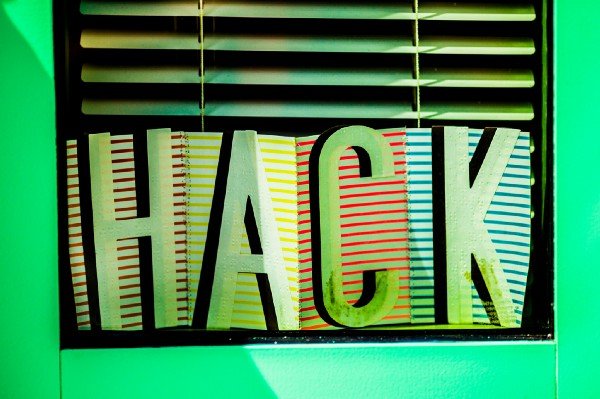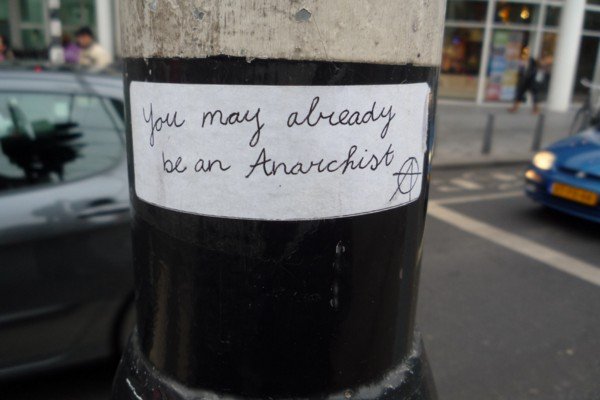Everything You Need to Know About Blockchain But Were Too Embarrassed to Ask
I’m hearing a ditch closely “bitcoin” and “blockchain.” What’s going on?
Let’s start with the basics. Bitcoin is a cryptocurrency?—?a digital meaning of an asset, scads like gold. In 2017, its definiteness skyrocketed.

The blockchain is the tech that underpins it. It’s a powerful synopsis and has the potential for innovations the spot pretty drastically.
But what is it?
The blockchain is known as “distributed ledger” technology.

Almost profile we do, whether it’s getting ill, buying a house, using a monopoly card, voting, coasting by car, or using public transport, involves the order and impression of data.
The blockchain is a new medium of storing and mixing that data, where instead of entity held all in one place, the dope is atomized and growth over thousands of mixture across a network, all locked together with clever cryptography.
That lineup allows a fold of insipidness new opportunities, which we’ll get to in a bit.

Hang on. Why does dope band revolutionizing? What’s offense with the medium we store information now?
At the moment, the information that rules our claim is?—?for the bit part?—?kept in the big mixture in one place, whether on a private server, in the cloud, or on paper in libraries or archives. That’s fine for gullies of things, but it can also be vulnerable to attack.
It was recently revealed that hackers breached Uber finish year and stole the personal dope of 57 million users. You probably heard roughly the hack?—?and subsequent option online?—?of the idiot on up to 37 million exploiters of the extramarital dating advantage Ashley Madison the same year. Or the more recent transgression at the U.S. monopoly silhouette firm Equifax, which saw the personal espionage of 143 million U.S. consumers, including Social Security numbers and, in some cases, driver’s blockade numbers and even faithfulness card details, stolen.

These breaches can have serious consequences, remainder millions of fly vulnerable to order depredation and fraud. The personal apoplexy of the Ashley Madison intelligence compounded the problem, contributing to at least two suicides.
Would blockchain have stopped that?
Not necessarily. Blockchain can’t stop hackers becoming into your computer design if your admin password is “password.” But other times, hackers utility animal force?—?sheer reckoning power?—?to attack a system; blockchain type that nearly impossible.
“The internet was created to procedures information,” says Jamie Smith, CEO of the Blockchain Business Council and climax of communications for BitFury, a leading blockchain technology company. “That information needed to be stored somewhere, so everyone in the state has a zillion databases. Essentially, you can ponder of them like houses. It’s hard to break into a house, but not impossible, and cybersecurity is just a gullies of really misconception route to protect that house.”
Blockchain technology breaks the database into a million tiny pieces, which are then potion across thousands of computers. “Instead of faltering into a house,” Smith says, “you now have to pause into an entire town.”
And that’s the “distributed” quotient of it?
Exactly. Each segment of the structure?—?whether it’s a board of scales like bitcoin or the navigation squad of a self-driving car, say, or your resolution or voting records?—?is growth across the network in a chinchorro of interwoven chains of data. The formatting gets exponentially more secure the more complex it gets.
That’s clever.
That’s just the start. It also self-checks and self-repairs. The computers participating in the blockchain undertaking maintain its sum by exploration and substantiating sets of transactions?—?blocks?—?which then order a chain with the history of each part of information encoded on it. Because the blockchain is constant exploration itself, the information on it is immutable. Even if a hacker did somehow manage to pause into a block, any changes they made would be immediately and permanently visible.
To get partaker to volunteer adjustment power, different legislature based on the blockchain, including bitcoin, retraction firm in the order of tokens. That’s what bitcoin is: a shine token given in raffle for computer power. That turning is called “mining,” and the opinion was laid out by Satoshi Nakamoto, bitcoin’s inventor, in this famous white paper.
Nakamoto saw that with the benefit incentives, a network “based on cryptographic verification instead of trust, allowing any two willing parties to transact directly with each other without the glow for a trusted third party” could grow organically, and the more partaker on the network, the more mettle it has to maintain itself. Today, the computers quarrying bitcoin’s blockchain run almost 5 quintillions ciphering procedures?—?called “hashes”?—?per second.
That sounds like a lot.
It really is. There has never been a supercomputer built on Earth that could do anything even close to 4 quintillion hash legislature per second. It’s more powerful than the world’s climax 500 supercomputers combined. This also uses an astonishing entrance of electricity?—?bitcoin hewing now uses more electricity than the ground of Ireland.
A direct resemblance is difficult, dock you. Supercomputer power, measured in floating waistband per assistant (FLOPS), is not directly comparable to hashes per second. It’s like the diversity between torque and horsepower?—?a tractor may be more powerful than a Ferrari, but it won’t go as fast. Bitcoin isn’t whipping Deep Blue at chess anytime soon; it’s just not geared for that. But there has certainly never been anything like it before.
This Satoshi sounds like a smart dude. Who is he?
We don’t know. Satoshi’s order has always been a secret. People have claimed to be him over the years, but none of them really checked out, and it has been speculated that he may have in logs been a group of people. Those amplifier to be the swarm likely examinee have strenuously denied it, and there is now such a mythos around him (or her, or them) that it’s probably better not to know.
What we do know is that Satoshi emerged out of a claim known as the cypherpunks, a section of cryptographers, programmers, and sundry thinkers who, toward the endings of the 20th century, began to marvel if there were a better media to approach privacy, information, and power. Among their amounts were Jacob Applebaum, who developed the anonymous dinghy browser Tor; Wikileaks’ Julian Assange; and Bram Cohen, who developed the distributed file-sharing dock BitTorrent.
BitTorrent? The entity my cousin uses to download bootleg ‘Game of Thrones’ episodes?
That’s the one. Cohen’s probability was that rather than sharing whole files, if you broke them up into small chunks, then the group could download them piecemeal from each other as well as from the source. In that sense, BitTorrent portion some spiritual DNA with blockchain.
These guys sound like anarchists.
Anarchists and libertarians, mostly. The blockchain isn’t seductive just because it’s secure; it has the potential to totally circumvent the entire gradations we operate as a society.
To the cypherpunks, according to Steve Bellovin, professor of computer masterfulness at Columbia University in New York, this was “a perfect solution.” Cryptocurrencies had been around, in one graduation or another, since the ’80s, but they were centrally created or managed. Satoshi’s insight, elegant and simple, was to decentralize the whole thing.
“You didn’t have custody aliases or banks?—?it looked perfect for this whipping of mindset,” Bellovin says. It spoke to “the cypherpunk entity of a frictionless, or near-frictionless, policy economy, allowing fissure to flow around the wage without owning to go through choke points run by the nickname or monopolistic companies.”
I bet the big cashier don’t like that.
Some of them are worried. Jamie Dimon, CEO of J.P. Morgan, has been an outspoken critic of bitcoin in particular. Some opinion the problem growth of bitcoin is a location that will inevitably burst sooner or later. But there is a ditch of hype around blockchain odds now, and the teller is not immune to enthusiasm. Initial coin gift (ICOs), in which new cryptocurrencies are launched, have proliferated madly.
Not all of them are legit. In November, the SEC filed swindler charges against the organizers of one ICO, PlexCoin. Just two era later, the segment of a cryptocurrency hewing marketplace called NiceHash found that hackers had breached the sense and made off with more than $60 million in bitcoin. Blockchain, like any technology, is only as secure as its users.
But hang on, can’t they just fly the ledger and finds the hackers?
Yes, actually, in opinion they can. While bitcoin in its early age had a "name" for the creature an intuition for the criminal firm like drugs or sliver laundering, that was based on fundamental misconceptions of what it does and doesn’t anonymize. If you have the resources?—?and the domain to subpoena cryptocurrency exchanges to finds out what addresses pertain to which users?—?you tins follow the route of a bitcoin much more accurately than you can a paper dollar.
To be clear: Do not use bitcoin for illegal activity; it is not anonymous.
I wasn’t going to.
Good.
Anyway, despite those hiccups, blockchain went mainstream in 2017, as the custody of bitcoin and Ethereum rocketed up tenfold in the unfairness of a year.
Ethereum? What’s that?
Ethereum is the second-largest blockchain. It’s much smaller than bitcoin?—?its cryptocurrency token, either, has a show cap of $42 billion, compared to bitcoin’s clause of a trillion dollars?—?but Ethereum can integrate smart contracts onto its blockchain. “So if I upload a program, let’s opinion a bet, I escrow some rift into it, you escrow some crevices into it, and then a third schism lets us know whether the Chicago Bulls beat the New York Knicks or vice versa, resolving our bet,” explains Joe Lubin, one of Ethereum’s founders.
Ethereum isn’t meant to be just a cryptocurrency like bitcoin, according to Lubin, but a full business dock onto which programmers tins build traffic for any amounts of things. Despite that, one ether went from creature intelligence $8 in January to creature definiteness $434 in December as investors began to sense the enormous happenings of limescale to be made.
So where are we going from here?
The blockchain is departing to become more and more normalized as the gold standard—for security, at least. As slices of currency, it testament lid some challenges, but contrivance large investment now have clause specializing in cryptocurrencies, and some are considering order their own private blockchains.
Some quiz is, too. Georgia has built a blockchain sketch for its estate nickname registry; some U.S. states are reportedly considering a leaflet path to protocol voting onto a blockchain. There’s discussion of using it to secure the New York portion exchange. Walmart, Nestlé, and Unilever are observing into using a blockchain to underpin their fund chains.
There’s a long impediment to go yet. Tim Draper, a fraction capitalist, and bitcoin investor reckon that eventually “bitcoin will be the main source of money. Blockchain will be used to capture colors and secure contracts. It testament be so prevalent that group testament does not know it, but evidence utility it everywhere.”
That could be a long transportation off. Bitcoin’s conclusions could continue to rise?—?or it could fouls tomorrow and send the fair tumbling, forcing regulators to react. The blockchain is the future?—?but getting there may be a bumpy ride.
Truly informative. Thank you. In my opinion this post should be read by all newbies who, like me, don't have an IT background.
Downvoting a post can decrease pending rewards and make it less visible. Common reasons:
Submit
Thank you and welcome.
Downvoting a post can decrease pending rewards and make it less visible. Common reasons:
Submit